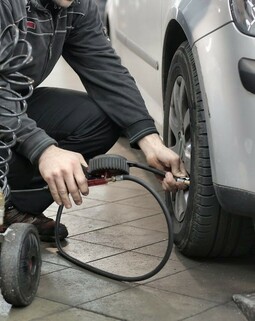Are you considering buying a car in Vietnam? Look no further, this comprehensive guide brought to you by Vietwheels has got you covered.
This guide is designed to empower you with the knowledge necessary to navigate through the intricacies and ensure a smooth transaction. Whether you’re a local resident or an expat, we’ve tailored our advice to suit your specific needs, offering insights on negotiating prices, choosing reputable dealerships, and evaluating used vehicles.
With Vietnam’s unique automotive landscape and regulations, it’s essential to arm yourself with the right information. Our guide will help you understand import duties, registration requirements, and common challenges faced by car buyers, helping you avoid potential pitfalls.
So, when you’re ready to embark on your car buying adventure in Vietnam, let our e guide be your trusted companion, ensuring a seamless and rewarding experience.
Pros and Cons of Buying a Car in Vietnam
When considering buying a car in Vietnam, it’s essential to weigh the pros and cons to make an informed decision. One of the significant advantages is the convenience and freedom that comes with owning a personal vehicle, allowing you to explore the country at your own pace. Additionally, having a car can be a status symbol in Vietnamese society, providing a sense of prestige and independence.
On the flip side, there are some drawbacks to be aware of when buying a car in Vietnam. High import taxes and registration fees can significantly increase the overall cost of purchasing a vehicle. Moreover, traffic congestion and limited parking spaces in major cities like Hanoi and Ho Chi Minh City can make owning a car more challenging. It’s crucial to consider these factors before diving into the car buying process.
Understanding Vietnam’s Car Market
Navigating the car market in Vietnam requires a good understanding of the local automotive landscape. The market is dominated by popular brands such as Toyota, Ford, and Hyundai, with a mix of both new and used vehicles available for purchase. It’s essential to research the market trends, pricing, and availability of different models to make an informed choice.
Vietnam has specific regulations governing the import and sale of cars, with restrictions on vehicle types and emissions standards. As a result, the selection of cars in the market may be limited compared to other countries. It’s advisable to explore both authorized dealerships and reputable private sellers to find the best deals and ensure the quality of the vehicle you’re purchasing.
Finding the Right Car Sale in Vietnam
Before making a car purchase in Vietnam, thorough research is key to finding the right vehicle that meets your needs and budget. Consider factors such as fuel efficiency, maintenance costs, and resale value when selecting a car model. It’s also essential to test drive different vehicles to assess their performance and comfort levels.
When researching cars, consider the availability of spare parts and servicing facilities for the chosen model. Opting for a popular brand with a strong presence in Vietnam can make it easier to find reliable maintenance and repair services. Additionally, consider the size of the vehicle based on your daily commuting needs and the road conditions in Vietnam.
Legal Requirements for Buying a Car in Vietnam
Buying a car in Vietnam involves adhering to specific legal requirements to ensure a smooth and lawful transaction. To register a vehicle, you’ll need to provide documents such as proof of ownership, a valid driver’s license, and vehicle inspection certificates. Understanding the registration process and required paperwork is crucial to avoid any delays or complications.
Import duties and taxes on cars in Vietnam can vary depending on the vehicle’s origin and specifications. Be prepared to pay these fees in addition to the purchase price of the car. It’s advisable to consult with a legal advisor or a knowledgeable individual to guide you through the legal aspects of buying a car in Vietnam.
Navigating the Car Buying Process in Vietnam
The car buying process in Vietnam can be a complex journey, especially for first-time buyers. Start by visiting authorized dealerships to explore the range of new vehicles available and compare prices and features. Be prepared to negotiate with dealers to secure the best deal that fits your budget and preferences.
For those considering purchasing a used car, it’s essential to conduct thorough inspections and vehicle history checks to ensure the car’s condition and authenticity. Private sellers may offer more competitive prices but be cautious of potential scams and fraudulent activities. Take your time to evaluate different options before making a final decision.
Tips for Negotiating the Price of a Car in Vietnam
Negotiating the price of a car in Vietnam is a common practice that can help you save money and secure a better deal. Start by researching the market value of the car model you’re interested in to have a baseline for negotiations. Be prepared to walk away if the price offered is higher than your budget or expectations.
When negotiating with dealers or sellers, emphasize factors such as the vehicle’s condition, mileage, and any additional features included in the sale. Don’t hesitate to ask for discounts or additional perks to sweeten the deal. Remember that bargaining is a cultural norm in Vietnam, so be polite but firm in expressing your offer.
Financing Options for Vietnam Cars
Financing a car purchase in Vietnam can be done through various channels, including bank loans, installment plans, or dealer financing. Evaluate the interest rates, repayment terms, and eligibility criteria of different financing options to choose the one that best suits your financial situation. Banks and financial institutions in Vietnam offer competitive rates for car loans, making it a convenient way to fund your purchase.
Before applying for a car loan, ensure that you meet the minimum requirements set by the lender, such as a stable income and good credit history. Compare the loan offers from different institutions to find the most favorable terms and conditions. Remember to factor in additional costs such as insurance premiums and registration fees when budgeting for your car purchase.
Maintaining and Insuring Your Car in Vietnam
Once you’ve purchased a car in Vietnam, it’s crucial to prioritize regular maintenance and proper insurance coverage to protect your investment. Schedule routine servicing appointments to keep your vehicle in optimal condition and prevent any potential issues. Look for authorized service centers or reputable mechanics with experience in handling your car model.
Insurance is mandatory for all vehicles in Vietnam, providing financial protection in case of accidents, theft, or damage. Explore different insurance providers and policies to find comprehensive coverage that meets your needs. Consider additional options such as roadside assistance and emergency towing services for added peace of mind on the road.
Conclusion
Buying a car in Vietnam can be a rewarding experience with the right knowledge and preparation. By understanding the pros and cons, researching the market, and navigating the legal requirements, you can make an informed decision that suits your preferences and budget. Remember to take your time in selecting the right car, negotiating the price, and exploring financing options to ensure a smooth and successful transaction.
Whether you’re a local resident or an expat, the car buying process in Vietnam offers a range of opportunities and challenges. With our ultimate guide at your disposal, you can confidently embark on your car buying journey, equipped with the tips, tricks, and must-knows to navigate through the complexities of the automotive industry in Vietnam.





